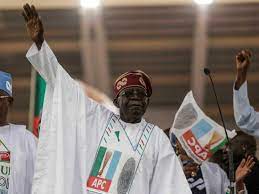Nigeria has elected Bola Tinubu as its new president, succeeding outgoing President Muhammadu Buhari, who served two terms. The country is facing significant economic challenges, including cash shortages, high inflation, and fuel shortages.
Buhari’s administration attempted to address the cash shortage by introducing a digital naira in October 2021, hoping to encourage electronic payments and rival private cryptocurrencies. However, the adoption of the eNaira has been slow, and the currency’s value continues to fall.
Tinubu, a member of the same political party as Buhari, plans to uplift the Nigerian economy by boosting the private sector.
However, it remains unclear what his stance is on cryptocurrencies, as the former administration prohibited local banks from offering services to crypto companies.
Nigeria’s young, tech-savvy population has made the country one of the world’s fastest crypto adopters, despite government efforts to curb its use. Still, the lack of merchants accepting digital payments has hindered the eNaira’s adoption, and local demand for the U.S. dollar has risen.
Opposition parties have disputed the outcome of the election, highlighting the ongoing nationwide anti-police brutality riots and protests over cash shortages.
Despite this, Tinubu’s victory signals a new chapter for Nigeria, and it remains to be seen how he will address the country’s economic challenges.



